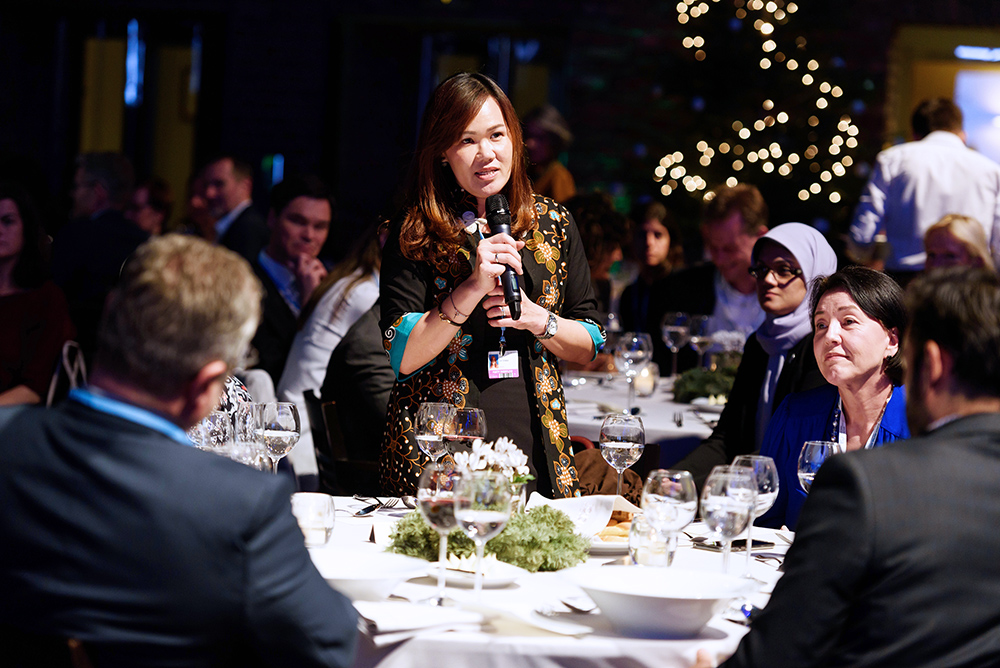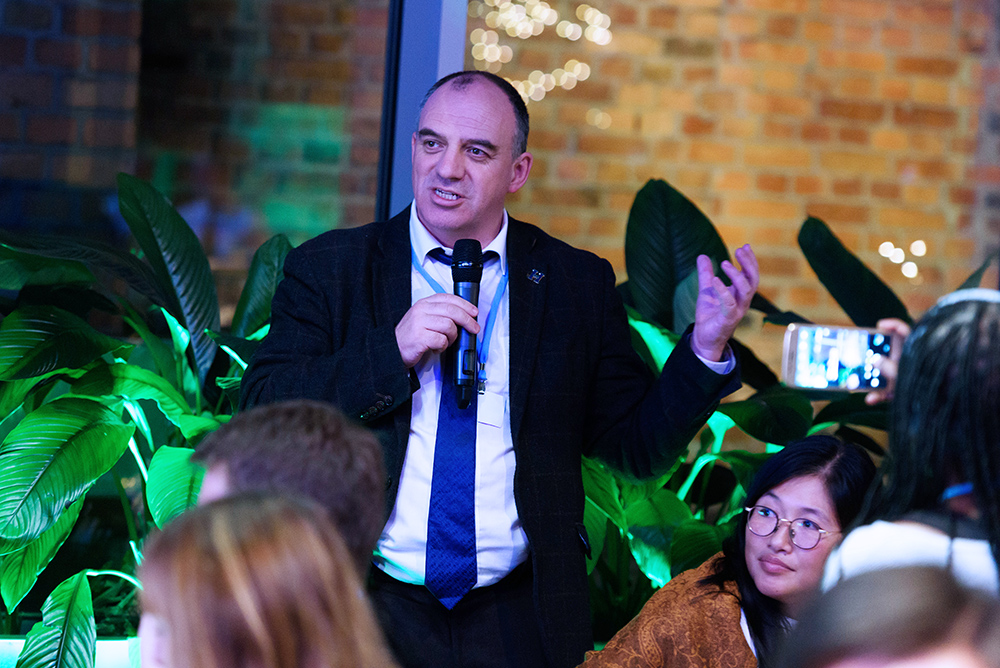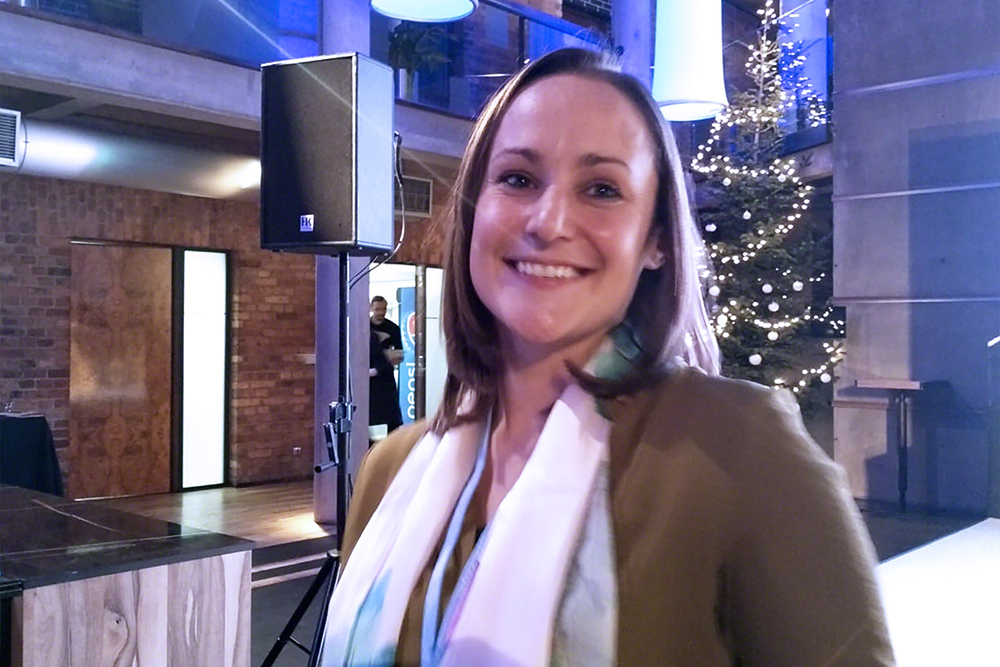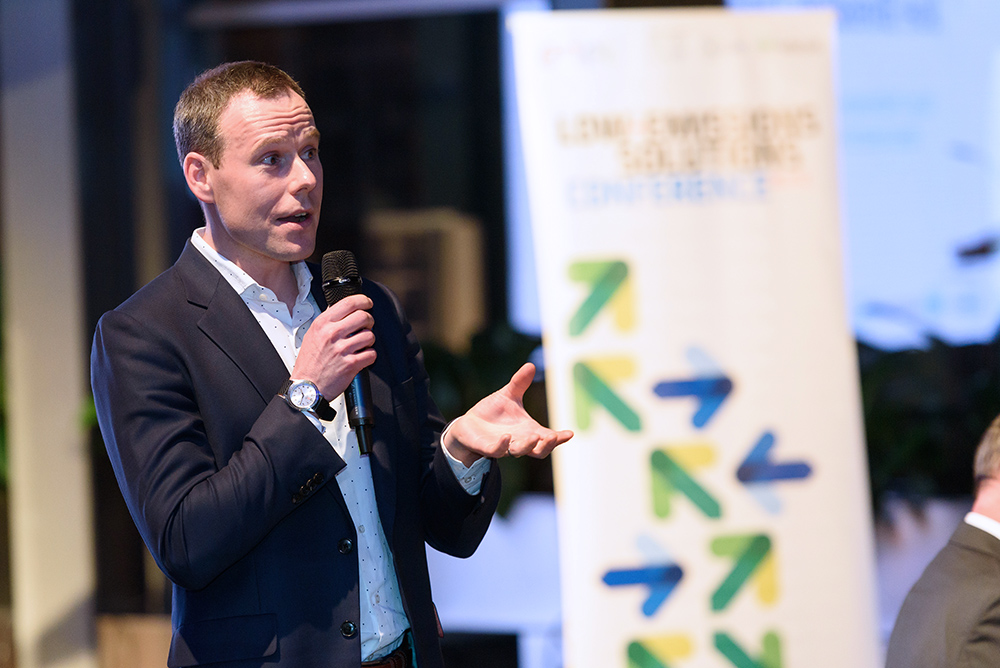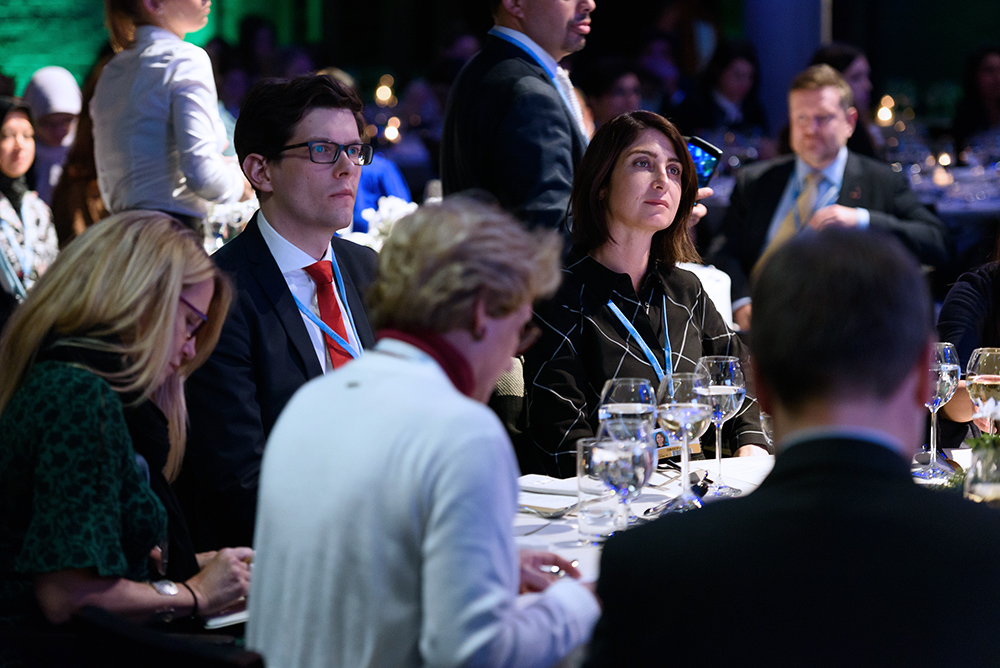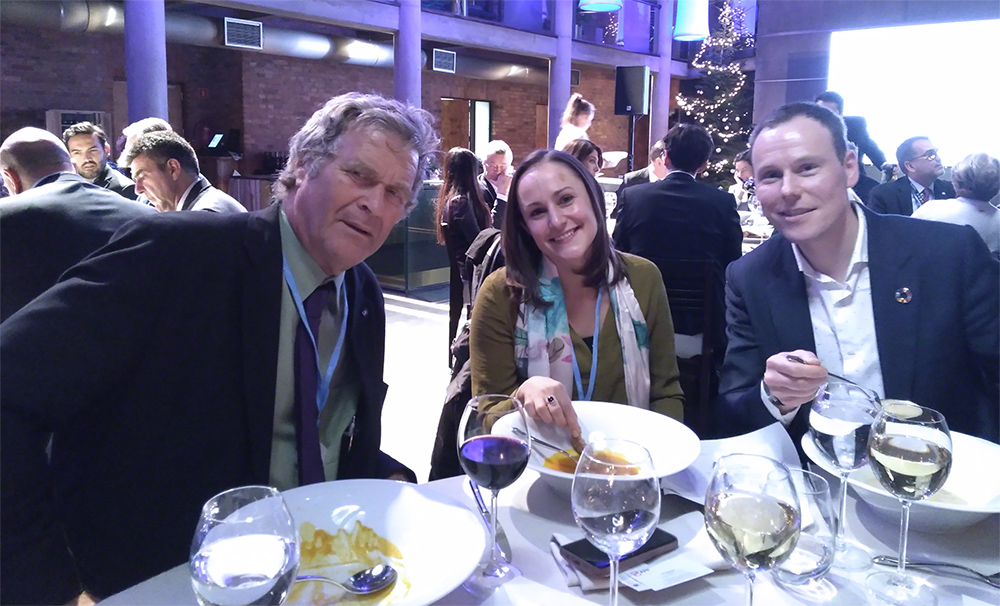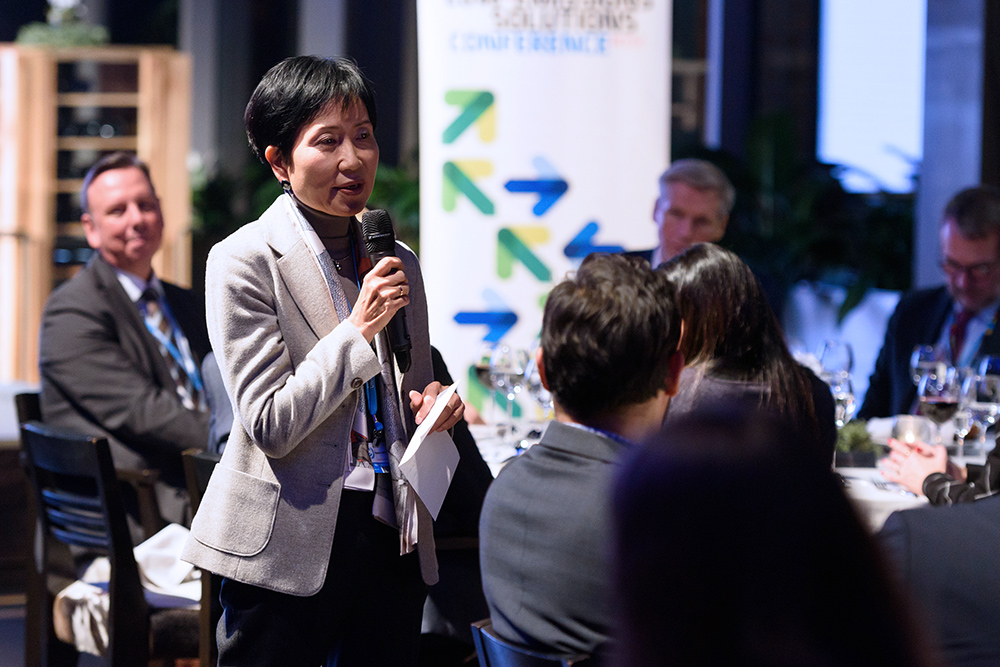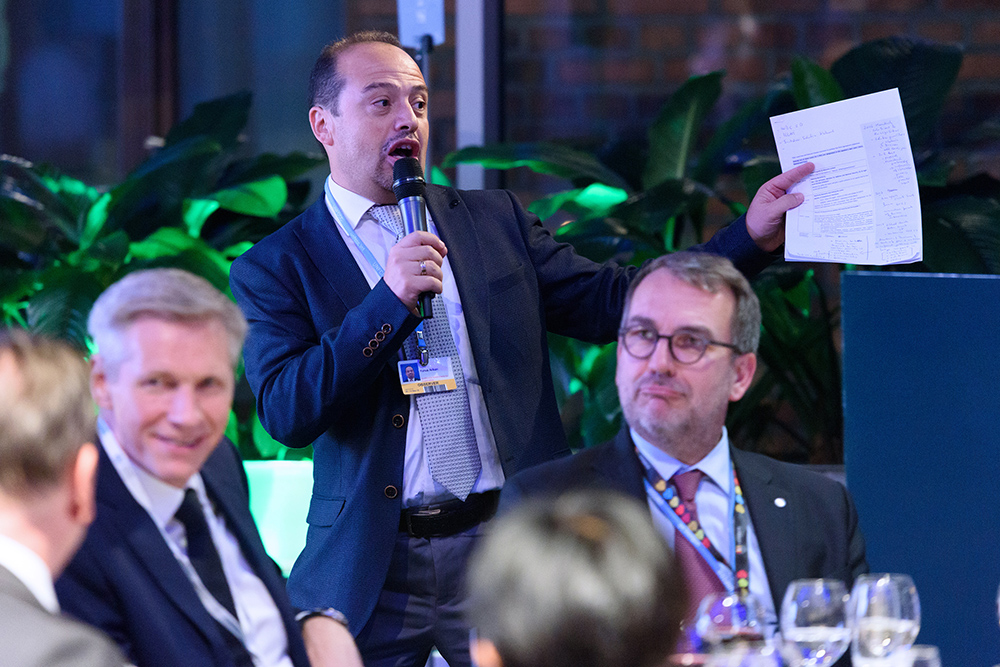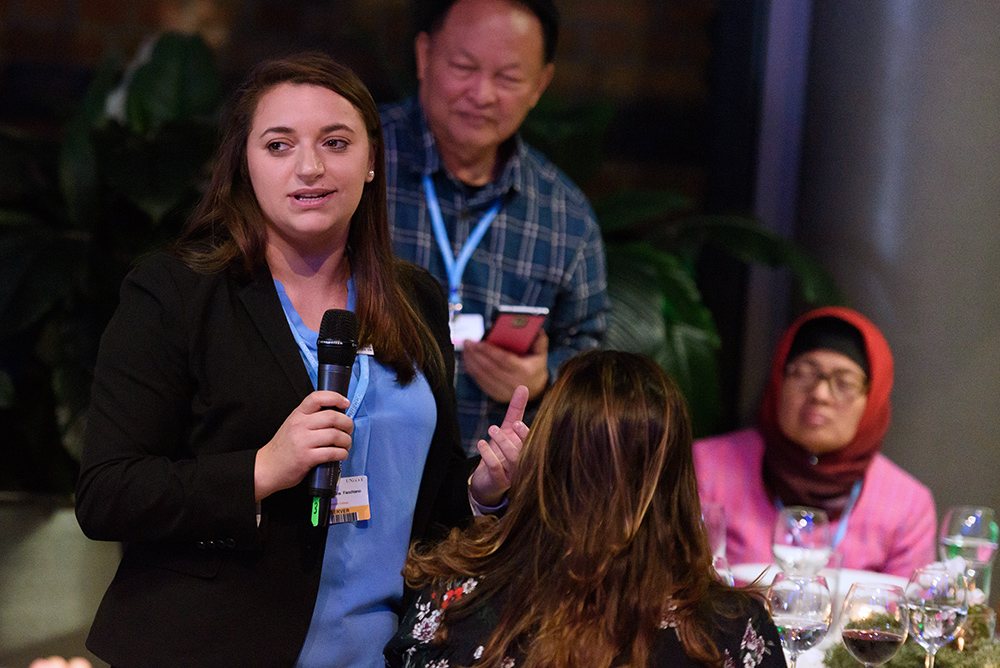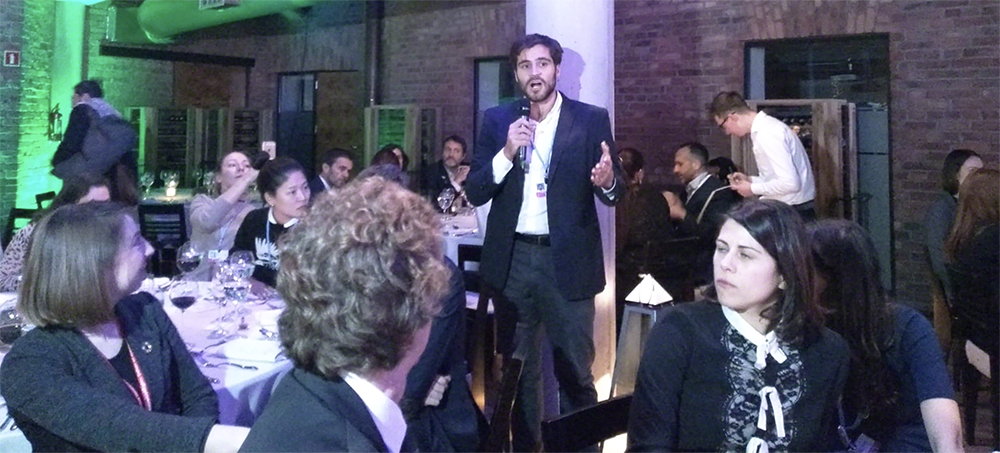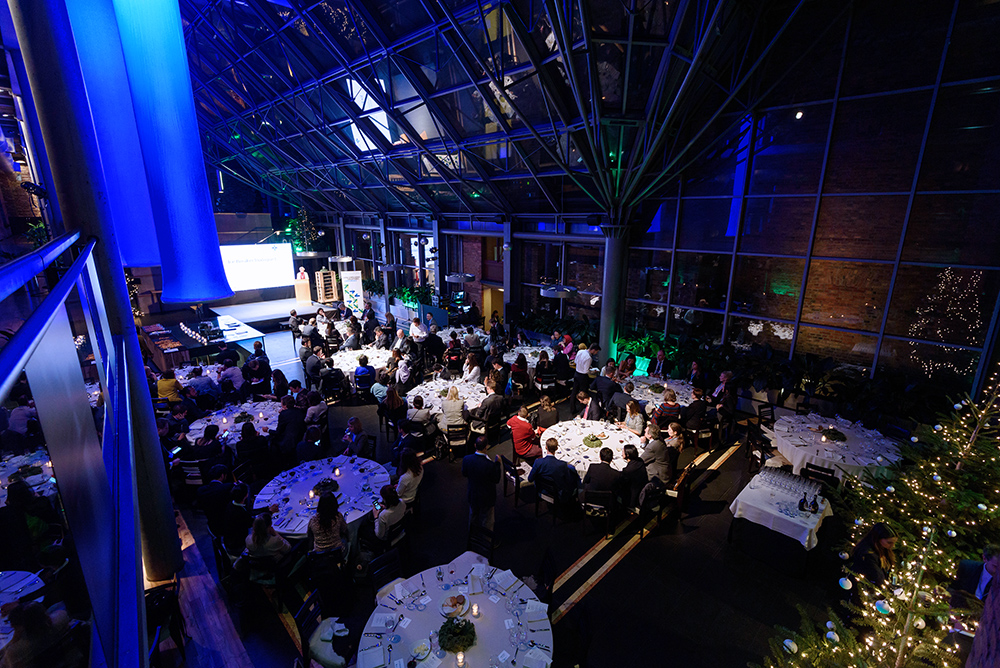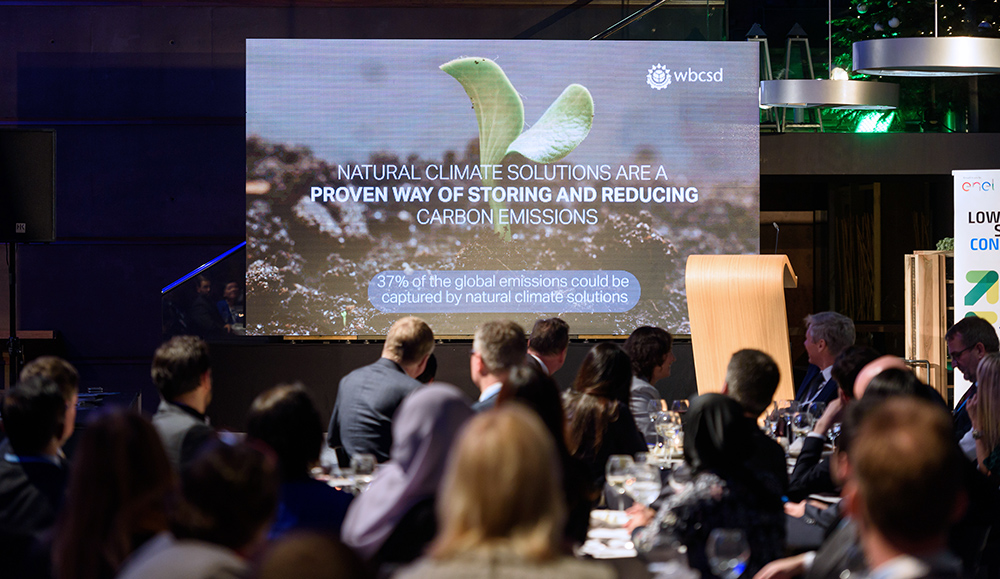Summary
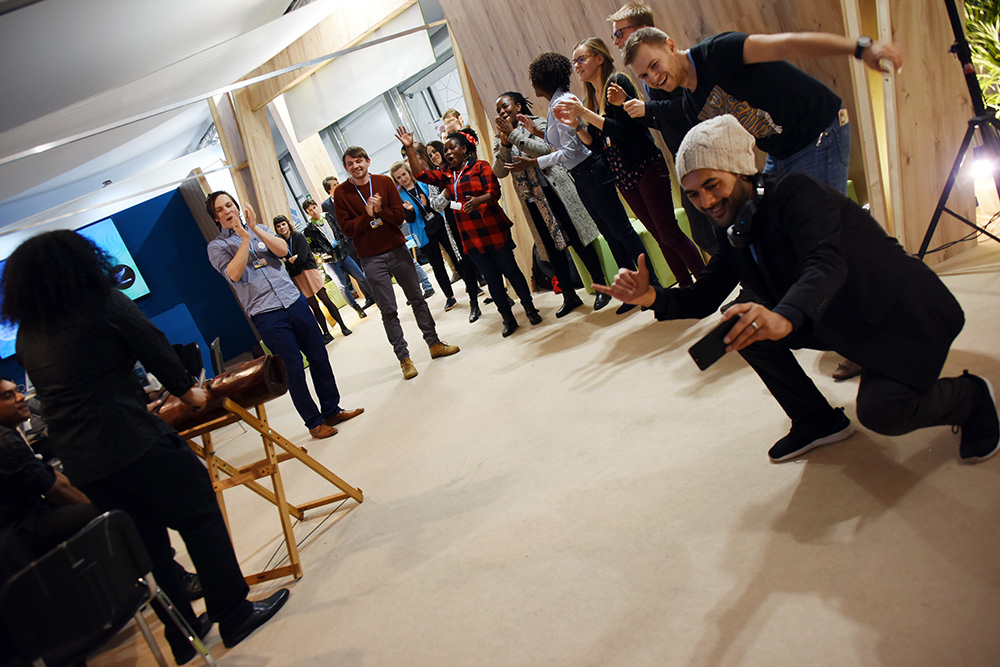
The following events were covered by IISD Reporting Services on Tuesday, 11 December 2018:
Photos by IISD/ENB | Natalia Mroz / Diego Noguera
For photo reprint permissions, please follow instructions at our Attribution Regulations for Meeting Photo Usage Page
NDC Partnership: Taking Action to Raise Climate Ambition in LDCs and SIDS through NDCs and Long-Term Strategies
Presented by the Global Green Growth Institute (GGGI)
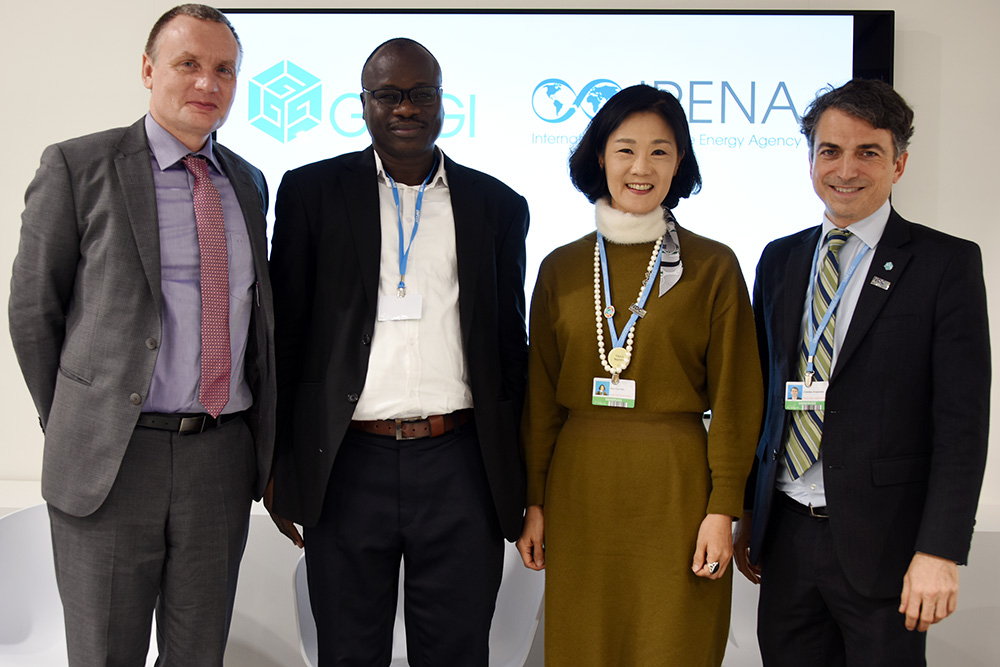
This event included senior government officials from Least Developed Countries (LDCs) and small island developing states (SIDS) who have championed mitigation measures in their countries, showcasing examples of projects for raising mitigation ambitions through Nationally Determined Contributions (NDCs) and long-term strategies. In the first part of the event, Orestes Anastasia, GGGI, moderated a panel discussion on the topic. In the second part, participants engaged in a dialogue on national and international mitigation ambitions.
Jean Pierre Mugabo, Ministry of Environment, Rwanda, set the scene for his country by mentioning that Rwanda is a small, developing state and has low greenhouse gas emissions compared to the global average. He addressed Rwanda’s ambitions to improve climate resilience by creating inclusive pathways to growth, centered on initiatives in the energy, agriculture transport; land use and forestry sectors. He pointed to Rwanda’s Green Forest Policy, which aims to convert significant amounts of agricultural land back to forests through agroforestry management techniques by 2024. Mugabo concluded by mentioning the importance of partnerships with other organizations, including the NDC Partnership, the GGGI, and local and regional knowledge groups, to monitor the impacts of climate change and reduce vulnerabilities to these impacts.
Jenny Kim, GGGI, stated that investment in green sectors facilitates job creation and increases productivity, contributing to economic growth. She showcased GGGI’s collaboration with partner countries to materialize green growth in the field and help them develop ambitious NDCs and effectively implement them. Kim stressed that GGGI also assists countries in developing national green growth resilient strategies, as well as introducing and revising policies that combine economic growth and environmental sustainability. On the issue of ensuring finance for the implementation of countries’ strategies and ambitions, Kim underscored that GGGI helps partner countries establish a national financial vehicle. She highlighted examples of Rwanda’s Green Fund and Senegal’s national renewable energy and energy efficiency fund, and explained that GGGI helps with mobilizing finance for investment in the green sector, facilitating countries gain access to the Green Climate Fund. She reiterated the Institute’s commitment to continue working with SIDS to effectively implement a high level of NDCs.
Dolf Gielen, IRENA, noted that 80% of NDCs include some sort of renewable energy targets with more than 40 countries mentioning adaptation and resilience building. He said that technological innovation is significant, showcasing IRENA’s analysis on renewables in the European Union, which shows that more renewables would be cost-effective today compared with 2014, given improvements in technology. Gielen highlighted IRENA’s collaboration with developed and developing countries as well as regional partnerships, and stressed that long-term energy planning should be based on sound modeling and the latest information available. He also noted the Agency’s efforts to enhance the policy framework and develop transition roadmaps for partner countries, and underscored the provision of project preparation support through their atlas of renewable potentials and guidelines for the development of bankable project proposals. He concluded by emphasizing the potential to increase the renewables component of NDCs and expressed IRENA’s commitment to provide the best possible information to countries that need it in to implement that potential.
Al-Hamdou Dorsouma, AfDB, gave context for LDCs and SIDS in Africa, pointing out that most of them have submitted very ambitious targets for mitigation by 2030 compared with other countries. What they need now, he said, is financial, technological and capacity-building support. He commented that commitments for adaptation in LDCs are too broad and too vague compared to mitigation, and that more work needs to be done by countries to build implementation arrangements for adaptation within their NDCs. He brought up the AfDB’s efforts to help boost adaptation and resilience in Africa by promoting mitigation and lo- carbon development, aiming to create an enabling environment for the private sector to provide its own support. He announced that the Bank has decided to “stop supporting fossil fuel projects”.
In the subsequent question-and-answer session, participants and panelists discussed: connecting the development objectives of LDCs and SIDS with their mitigation and adaptation targets; the difficulty of changing governments’ mindsets towards green growth and maintaining political momentum once projects are enacted; the necessity of private funds to help create an enabling environment across Africa; the difficulty of maintaining skilled personnel in the public sector; and what raising adaptation ambitions truly looks like. Some participants expressed doubts that financial institutions are moving too slowly to adequately support countries’ efforts, while others pointed to the availability of international finance as a potential solution.
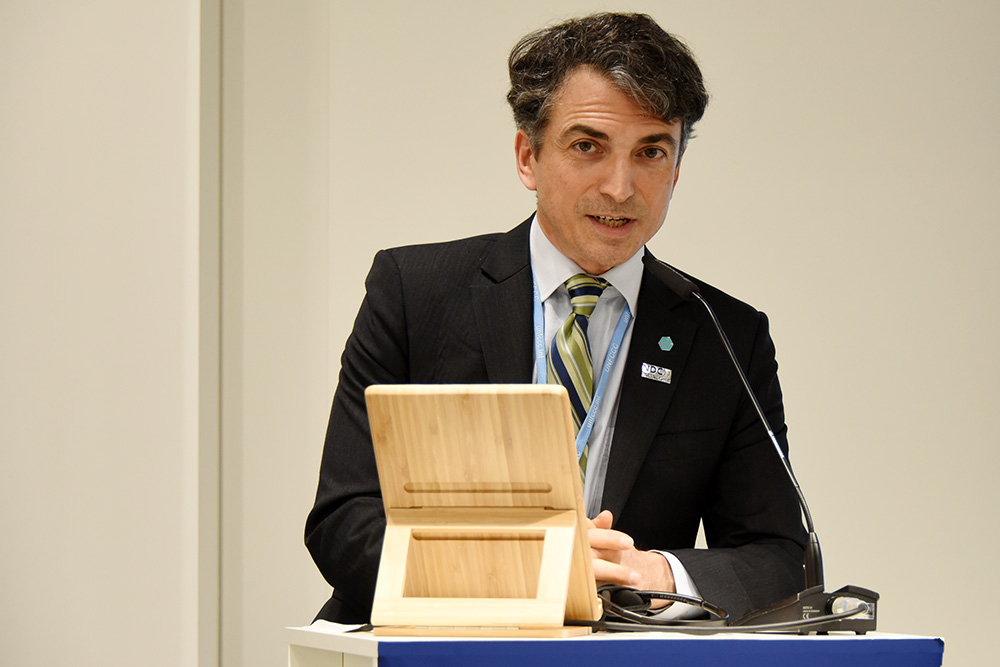
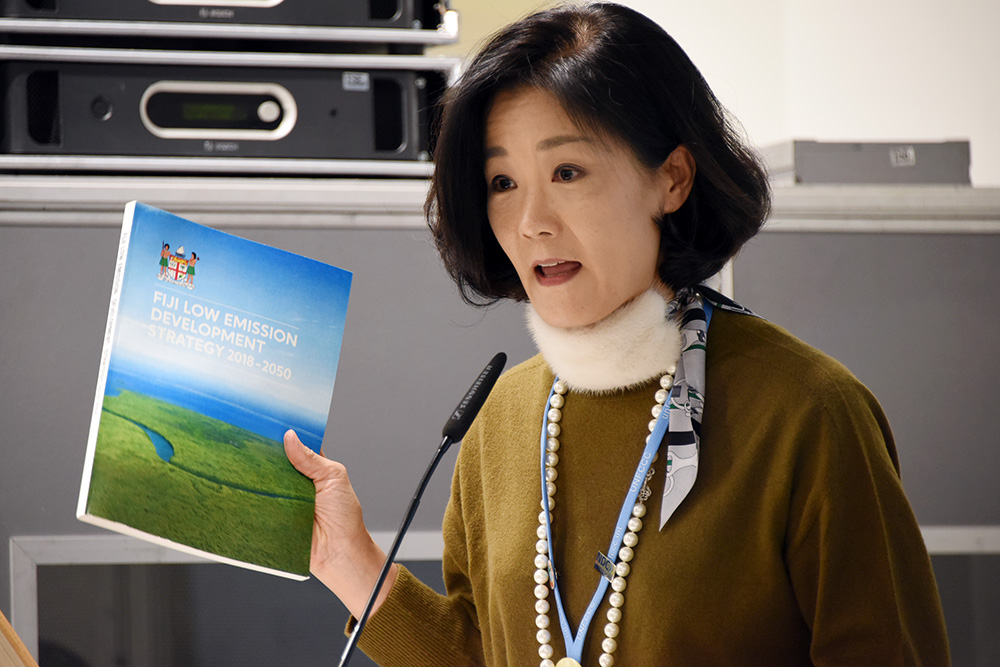
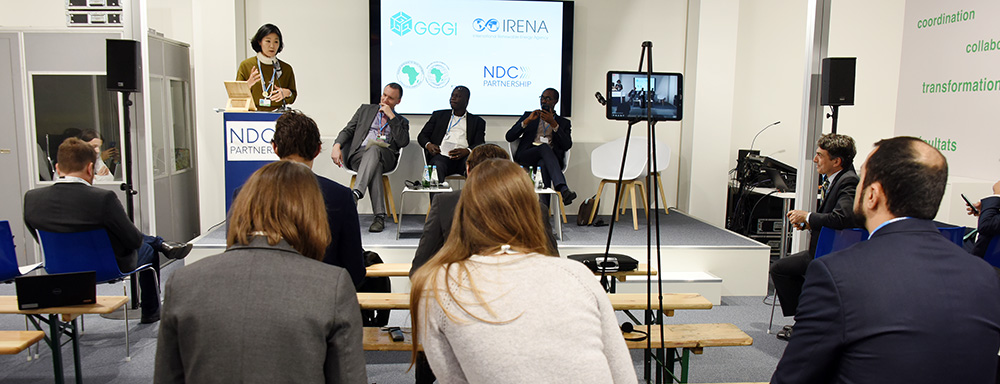
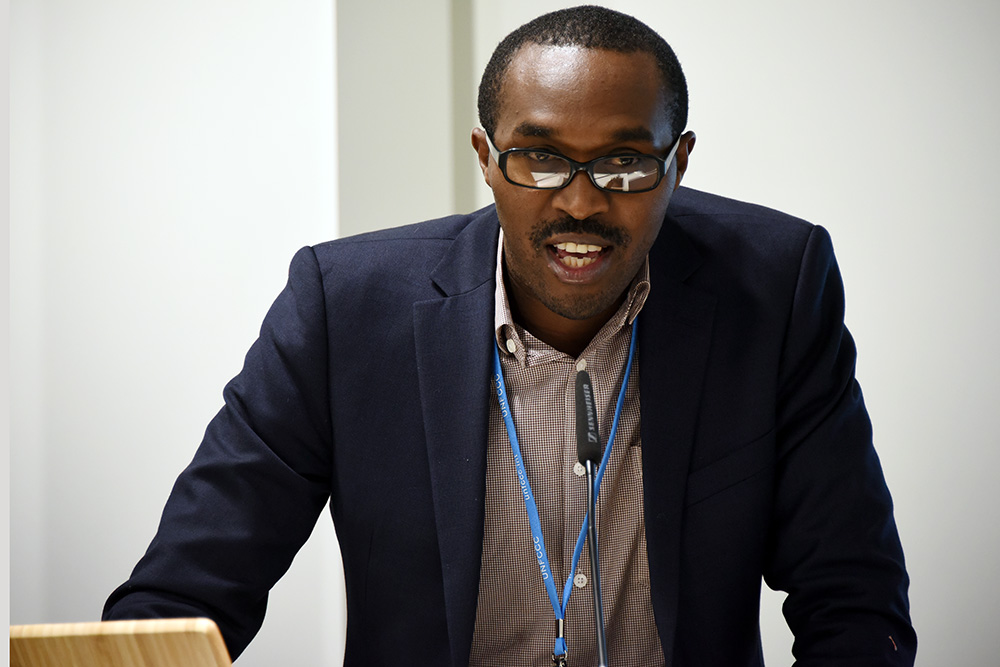
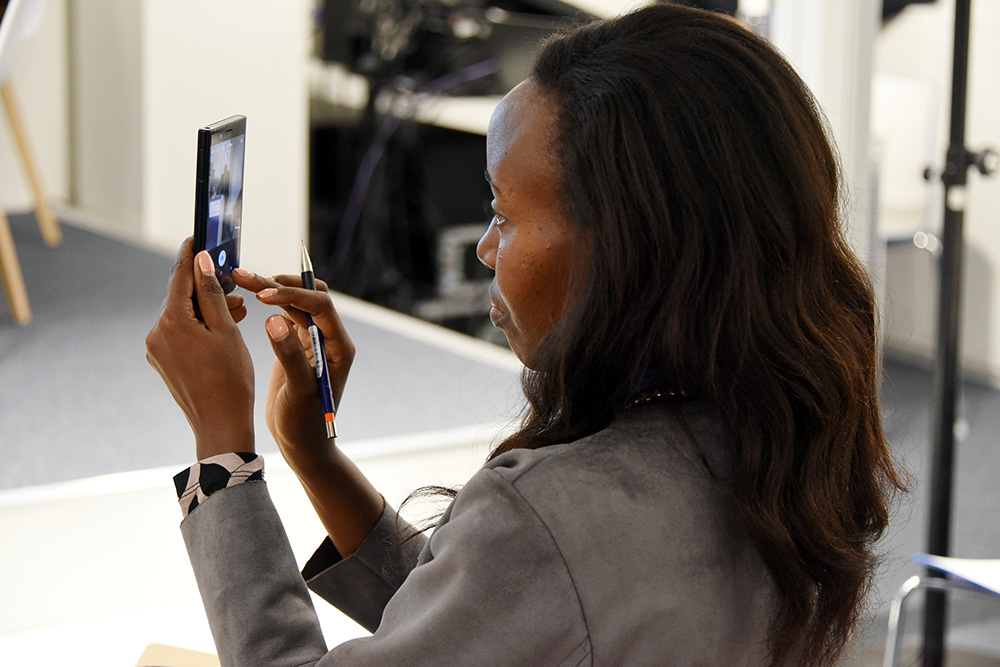
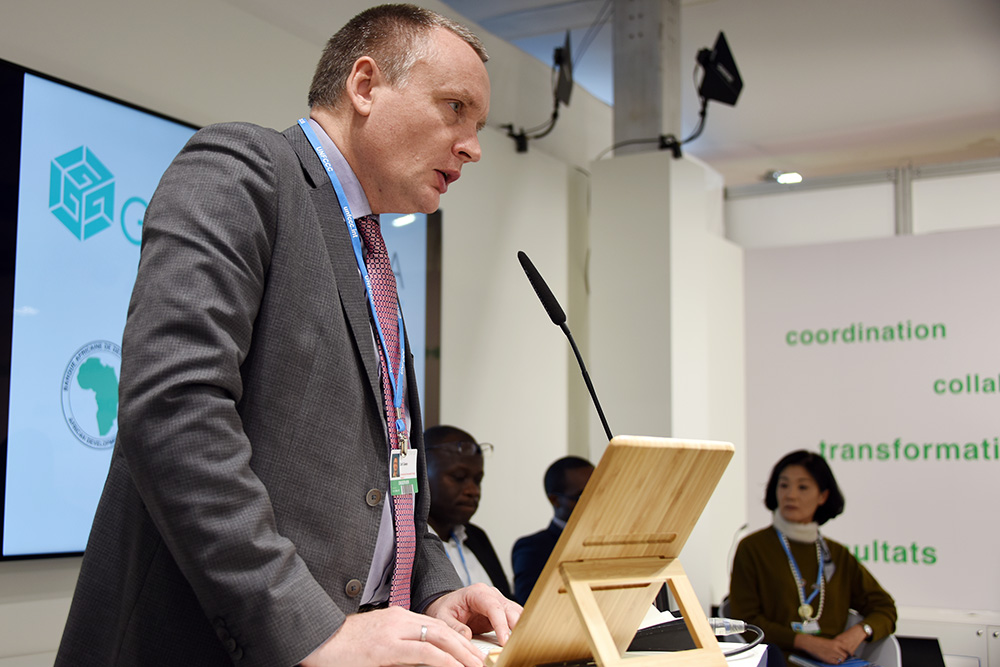
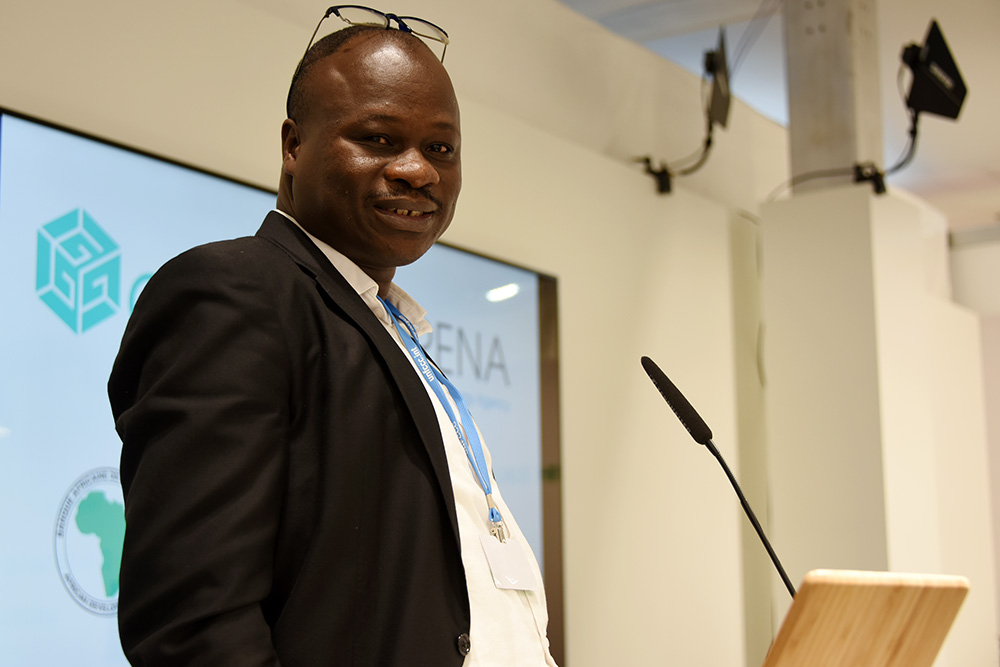
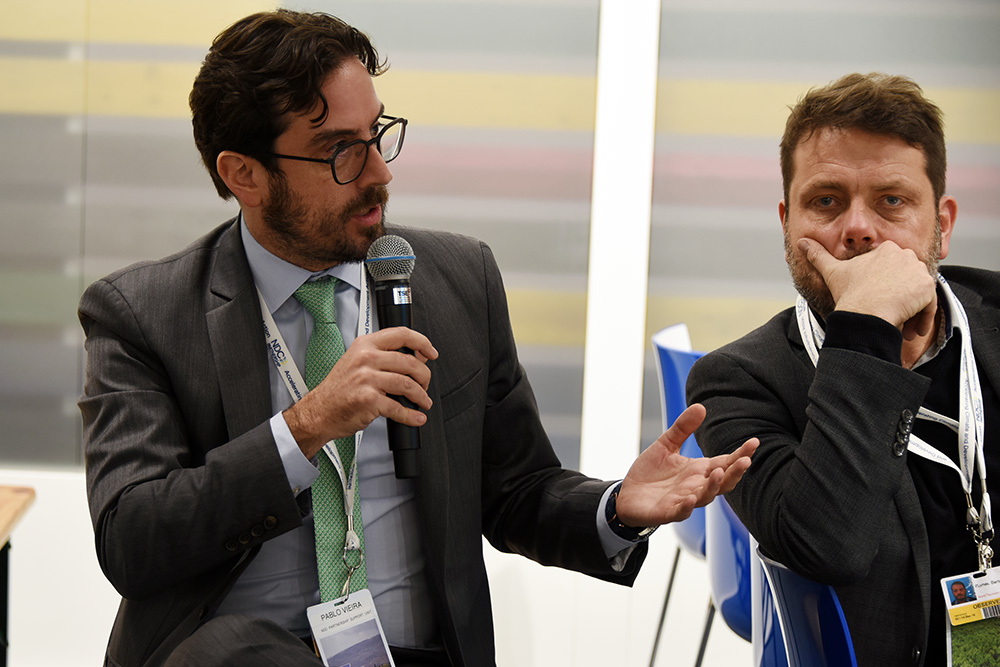
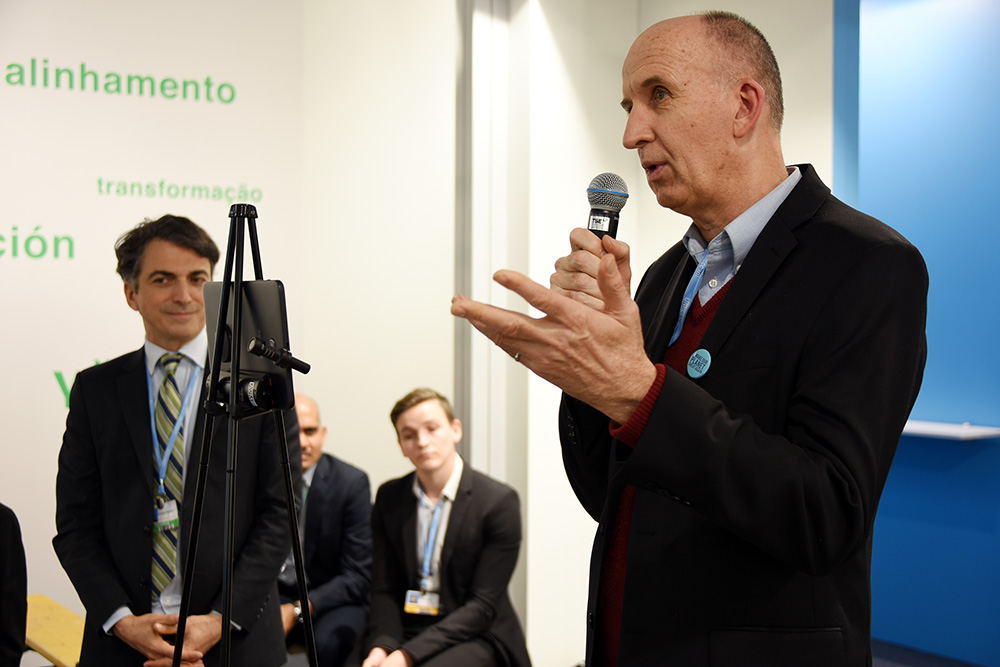
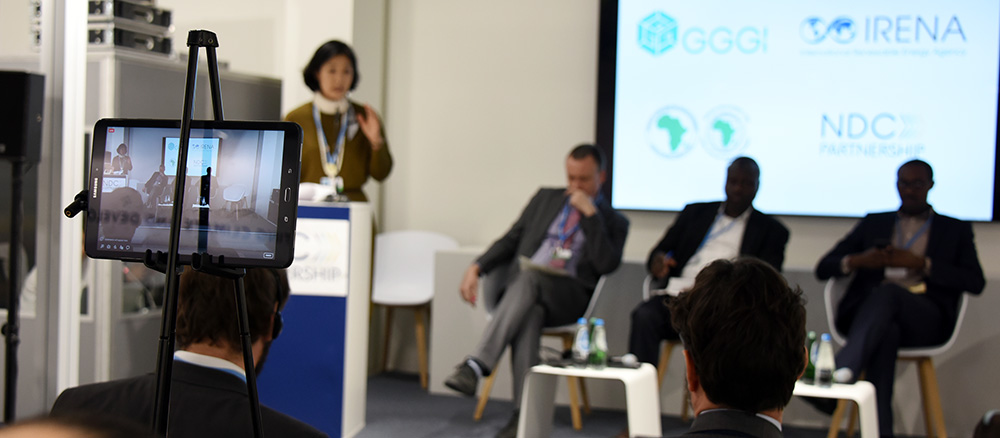
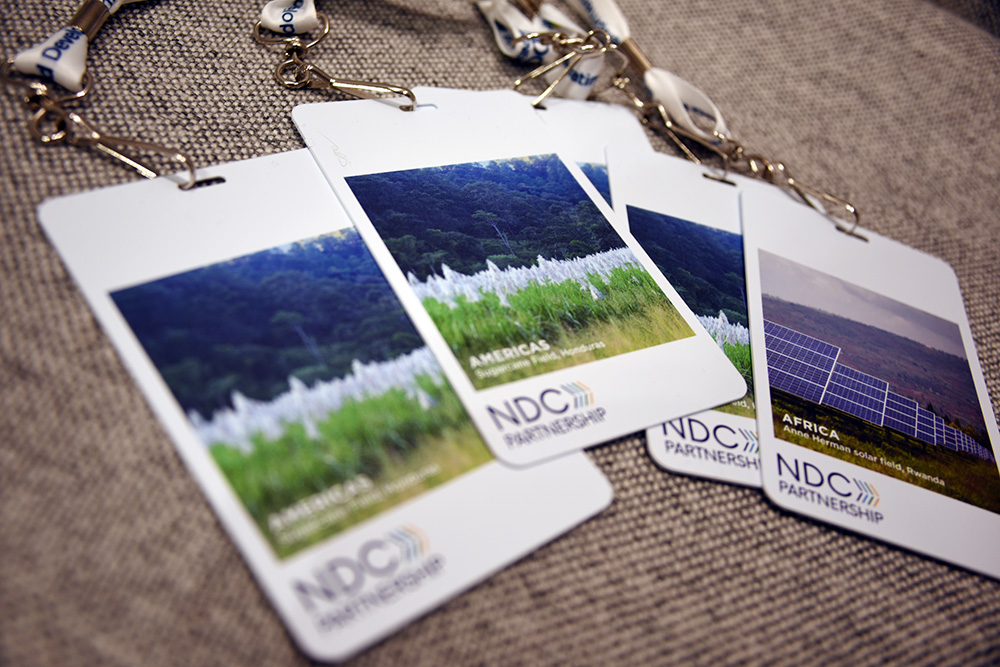


Low-Emissions Solutions Conference (LESC): High-Level Dinner Dialogue
Presented by the World Business Council for Sustainable Development (WBCSD), in collaboration with the Sustainable Development Solutions Network (SDSN) and ICLEI – Local Government for Sustainability (ICLEI)
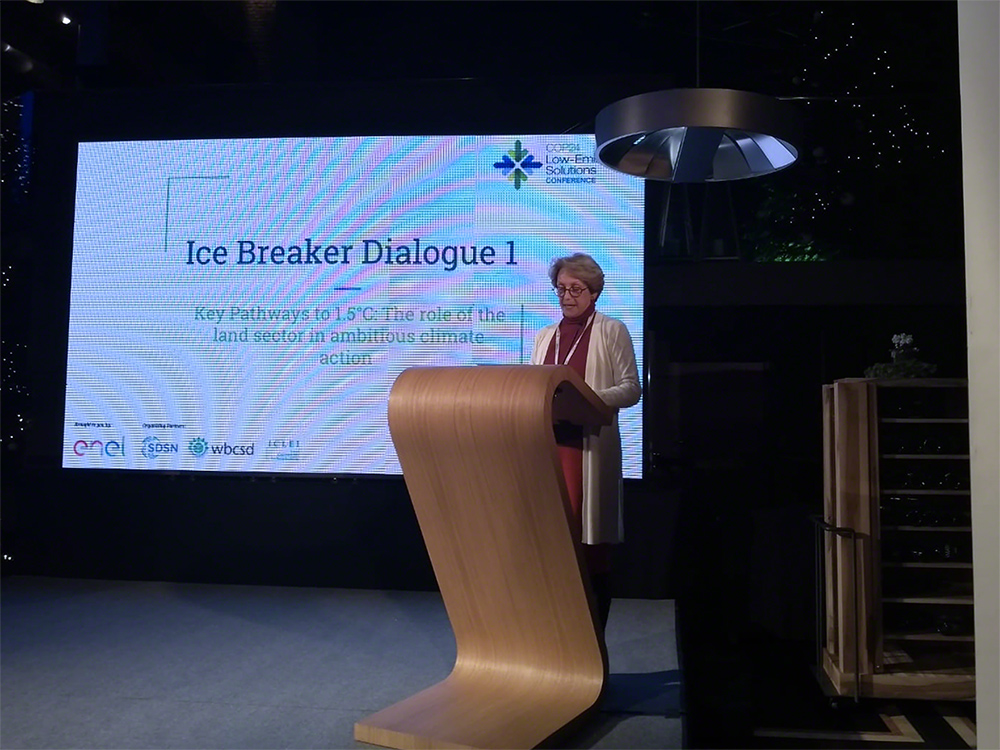
The LESC dinner convened to facilitate open dialogue between business, government and academia on the role of land-use and natural climate solutions as an essential component of climate action. The event also focused on the land-energy nexus and its role in the transition to a low-carbon future.
In his remarks, Gino van Begin, Secretary-General, ICLEI, emphasized the importance of this dinner in bringing together businesses, civil society, cities and research institutions, saying it sends an important signal to negotiators at COP 24 that these sectors can cooperate in developing climate solutions. He noted LESC’s relationship with the Marrakech Partnership for Global Climate Action and previous gatherings at the 2017 New York Climate Week and COP 23. He closed by challenging attendees to collectively find solutions that can help us raise our ambition and achieve the 1.5˚C temperature target.
Maria Mendiluce, WBCSD, noted that from the outside, it always appears as though negotiations are progressing slowly. She stressed the importance of engaging with the public on the importance of addressing climate change, adding that businesses, cities and researchers are well placed for this due to established relationships with customers and citizens. Mendiluce also said that this dinner is specifically focused on natural climate solutions, which can affordably provide over 30% of the climate solution.
Rasmus Valanko, WBCSD, Elena Crete, SDSN, and Yunus Arikan, ICLEI, co-moderated a dialogue on “Key Pathways to 1.5°C: The Role of the Land Sector in Ambitious Climate Action.”
Thelma Krug, IPCC Vice Chair, citing the IPCC Special Report on 1.5°C (SR15), highlighted that climate change impacts and pathways should be addressed in the context of the Sustainable Development Goals (SDGs). She noted that the 1.5°C scenario requires rapid transitions in energy, land, ecosystems, and infrastructure, highlighting the need for an increase of 70-80% in renewable energy for electricity by 2050.
Naoko Ishii, CEO and Chairperson, Global Environment Facility (GEF), underscored that transformation is key to catalyze the change to meet the 2°C scenario, if not 1.5°C. She highlighted the essential role of multi-stakeholder coalitions, including with governments, cities and academia, to move all decarbonization pathways forward. Ishii then pointed to the potential loss of nature’s ability to provide solutions, such asin the Amazon, which is approaching a “tipping point” as a carbon sink.
Moderators opened the floor for participants to share examples of climate action.
- Felipe Villela, reNature Foundation, said his work involves restoration of degraded lands through agroforestry.
- Elim Sritaba, Asia Pulp and Paper, highlighted her company’s success in eliminating the use of natural forests for pulp production in 2013.
- Martin Frick, UN Framework Convention on Climate Change (UNFCCC) Secretariat, highlighted the recent charter signed with leading fashion companies and encouraged further collaborations of this kind.
- Andrew Cooper, Green Party Local Councillor, United Kingdom, shared a local project to plant over 1000 fruit trees that involved local children.
- Joan Krajewski, Microsoft, encouraged attendees to apply for their USD 50 million fund “AI for Earth” with innovative projects focusing on water, agriculture, biodiversity or climate change.
- Rebecca Heaton, Drax Group, described their demonstration project using bioenergy with carbon capture and storage, which is now capturing one tonne of CO2 per day.
- Flavia Bellaguarda, Youth Climate Leaders, shared her organization’s work to prepare youth for embarking on climate-focused careers.
- Adriana Facchiano, student, Moravian College, highlighted her university’s efforts to implement the SDGs at the local level through the Millennium Campus Network.
In a session on scaling up natural climate solutions, Alema Bibi, WBCSD, introduced WBCSD’s video on natural climate solutions, which highlighted that natural climate solutions could offer up to 37% of the emission reductions needed between now and 2030 to limit global warming to 2°C.
In an interactive dialogue, participants introduced best practices on multi-stakeholder coalitions, inter alia:
- a multi-stakeholder coalition’s efforts in São Paulo, Brazil, to address water pollution, especially by bringing money from the private sector; and
- a sewage system utilizing wastewater and land water in the same pipe, with large natural reserves in a town in Weststellingwerf, the Netherlands.
Andreas Ahrens, IKEA, answering the question on how to reach 1 billion people to take climate actions in their home countries, said, “we need more, we can do more.” He underscored the need to invest in ensuring sustainable supply chains that integrate, for example, positive changes in land-use management while building resilience.
On finance and innovation, Jennifer Morris, Conservation International, noting that only 2% of global climate finance goes to forests due to the lack of demand, highlighted the importance of carbon pricing and green bonds to get investors involved. She also said that now is “the age of adaptation,” and stressed the role of the media in raising awareness about the urgency to address climate change adaptation.
In a second round of sharing climate actions.
- Victor Salviati, Sustainable Amazon Foundation, mentioned his organization’s efforts to engage indigenous and traditional communities for sustainable development in the Amazon.
- Ralf Pfitzner, Volkswagen Group, highlighted an upcoming electric vehicle that will have a carbon-neutral supply chain.
- Luc Bas, International Union for Conservation of Nature, called for more efforts to include nature-based solutions in cities.
- Bernhard Stormyr, Yara, stressed the need for restoring land degraded by agriculture and that agrobusiness can contribute to this.
- Jeremy Manion, Arbor Day Foundation, shared a reforestation initiative in Mississippi, US, and commended the role of the private sector in supporting such projects.
- Dario Abramskiehn, Climate Policy Initiative, talked about the The Lab, an incubator for climate finance solutions, which is open for idea submissions until 19 December 2018.
- Pierre Rousseau, BNP Paribas, highlighted their collaboration with the UN Environment Programme to finance agroforestry and agroecology projects.
Tomasz Chruszczow, High-Level Climate Champion for COP 24, Poland, highlighted Poland as an example of the sustainability transition, from a country based on mining and heavy industry with high levels of pollution and environmental degradation to one moving towards a low-carbon economy. He cited the Polish Environment Protection Fund, created in 1989, as a key pillar of this transition. He also said that environmental services must be properly priced, noting that we have long taken the benefits of nature for granted. Chruszczow identified three words that are currently paramount in the negotiations: transition, collaboration and innovation. He closed by reinforcing the importance of circular economy approaches to reducing emissions in waste and industrial production.
In his closing remarks, Martin Frick, UNFCCC Secretariat, called on all sectors to act with inspiration and not be limited in their ambition by what we currently know how to do right now, noting we must be planning for the decades ahead. He also stressed we must go beyond “sustainability,” which privileges the status quo, and be thinking more about “restoration.” Frick also said that farmers should be thought of as potential agents of change who help keep our life support systems working, both in terms of feeding the world and protecting nature.
